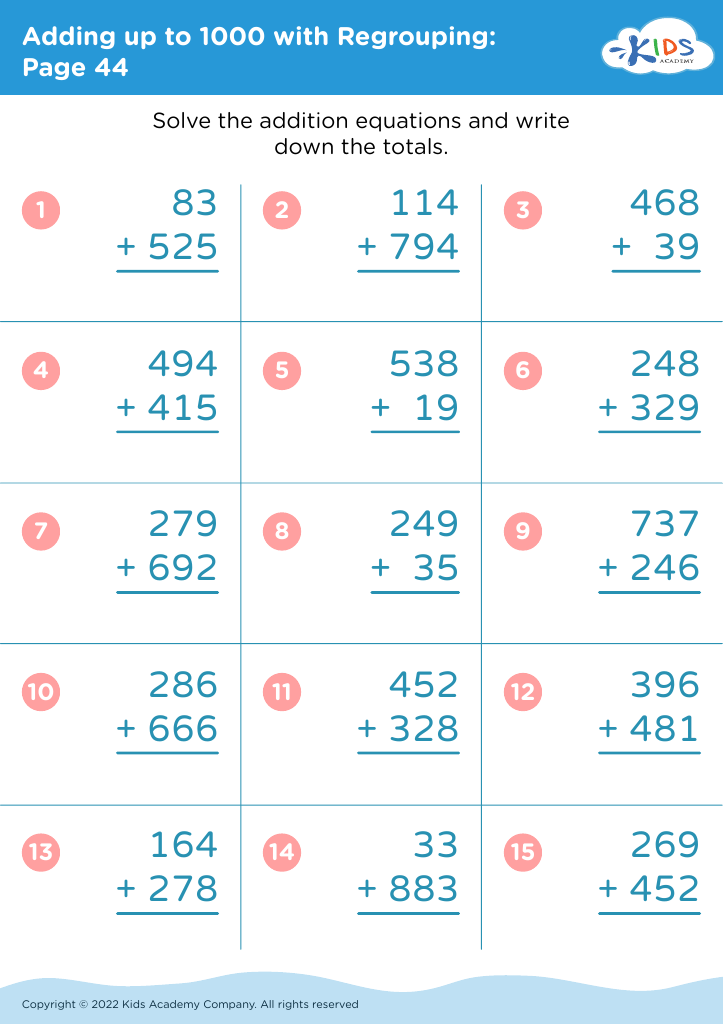Improve counting skills Adding up to 1000 with Regrouping Worksheets for Ages 6-9
3 filtered results
-
From - To
Boost your child's counting prowess with our "Improve Counting Skills Adding up to 1000 with Regrouping Worksheets" designed for ages 6-9. These engaging and educational worksheets help young learners practice addition with regrouping, an essential skill for mastering larger numbers. With brightly illustrated problems and kid-friendly instructions, children can develop strong mathematical foundations while having fun. Ideal for both classroom use and at-home practice, our worksheets encourage confidence and competence in numeracy, ensuring your child gains the skills they need to succeed. Enhance their learning journey today by introducing these valuable counting exercises. Dive into counting excellence now!
Improving counting skills and the ability to add up to 1000 with regrouping in children aged 6-9 is vital for several reasons. First and foremost, these foundational math skills are crucial for everyday life, from counting money to measuring ingredients while cooking or even understanding time. By mastering these abilities at an early age, children build a strong mathematical foundation that eases the transition into more advanced arithmetic and algebra concepts later in their education.
Developing counting skills and addition with regrouping also enhances cognitive development. The problem-solving involved in these exercises fosters critical thinking and analytical skills. It encourages children to think in multiple steps, understand the place value system, and grasp the concept of carrying over numbers, known as regrouping. Early mastery of these skills can instill a sense of confidence and competence in math, reducing anxiety and promoting a positive attitude toward the subject down the line.
Further, these math skills are often interwoven with other learning areas, such as reading comprehension and logical reasoning. Successfully integrating math with other subjects can provide a more holistic educational experience. Parents and teachers caring about these skills ensure that children are well-prepared for academic challenges and everyday tasks, effectively setting a strong foundation for lifelong learning and problem-solving skills.


















